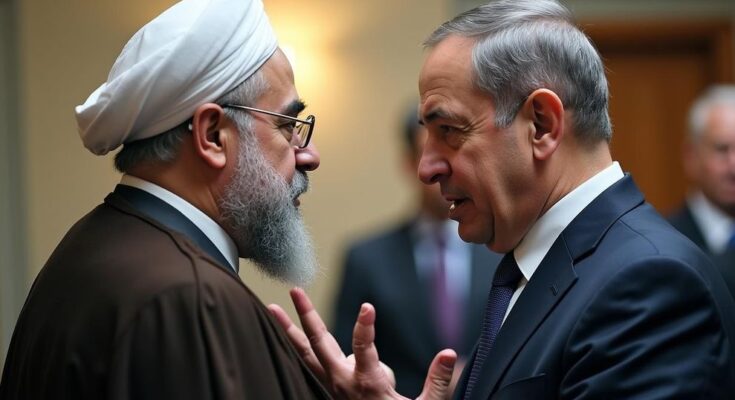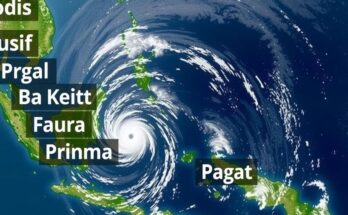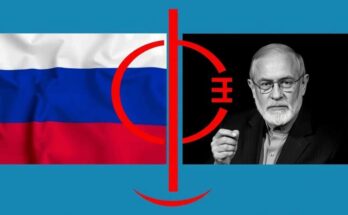On Thursday, Israeli airstrikes killed 22 in Beirut and injured 117, targeting a Hezbollah leader. The attacks have drawn global condemnation and calls for a cease-fire. The US and France back efforts to strengthen the Lebanese army amidst escalating hostilities. Concurrently, allegations arise concerning Iranian military chief Esmail Qaani being investigated for possible collaboration with Israeli intelligence following the deaths of key Hezbollah figures.
The ongoing conflict between Israel and Iran escalated significantly on Thursday, marked by a series of Israeli airstrikes that resulted in the deaths of 22 individuals in Beirut and left 117 others injured. These strikes were intended to target Wafiq Safa, a high-ranking figure within Hezbollah, who was reportedly absent during the attacks, which resulted in the total destruction of several buildings. Moreover, the Israeli military targeted the United Nations peacekeeping forces in Naqoura, injuring two peacekeepers who required hospitalization. Relations between Israel and UNIFIL, the UN’s peacekeeping contingent in Lebanon, have been strained since Israel commenced a ground invasion on October 1, which faced resistance from UN troops at the border. The latest Israeli offensive against the UN forces has drawn widespread international condemnation, including a call from the United States for an immediate ceasefire to halt a potential further escalation of the conflict involving Iran, Lebanon, and Israel. The humanitarian toll of the conflict is dire, with over 2,000 reported deaths in Lebanon and millions displaced since the outbreak of hostilities. Lebanon’s crisis response unit indicated that at least 28 individuals were killed in the preceding 24 hours alone, adding to a staggering total of 10,212 wounded throughout the Israeli offensive, according to the Lebanese Health Ministry. Similar violent actions have been reported in Gaza, where Israeli missions aimed at neutralizing militant targets have continued. Notably, Palestinian sources reported that an airstrike on Thursday struck a school sheltering displaced persons, resulting in the deaths of at least 27 individuals, including a child and seven women. In the context of the ongoing conflict, both France and the United States have expressed their support for bolstering the Lebanese army, positioning it as essential to stabilizing the region. Deputy US Ambassador Robert Wood emphasized, “The solution to this crisis is not a weaker Lebanon. It is a strong and truly sovereign Lebanon, protected by a legitimate security force, embodied in the Lebanese Armed Forces.” Furthermore, U.S. Vice President Kamala Harris has advocated for a de-escalation of hostilities in the region, asserting the need for a ceasefire amidst Israel’s aggressive actions in Gaza and Lebanon. Compounding these tensions, reports have emerged suggesting that Iranian military chief Brigadier General Esmail Qaani is under investigation, suspected of potentially collaborating with Israeli intelligence following the recent assassinations of prominent Hezbollah leaders. Qaani’s unaccounted status post-attacks has contributed to speculations regarding his loyalties, as sources indicate he is currently being interrogated under house arrest. The situation remains volatile, with ongoing military actions and political ramifications continuing to unfold on various fronts.
The Iran-Israel conflict has a long-standing history characterized by political tension and military confrontations. In recent years, the conflict has intensified, particularly with the involvement of Hezbollah, an Iranian-backed militant group based in Lebanon. The latest series of airstrikes by Israel is part of its broader strategy to counter Hezbollah’s influence and capacity to carry out attacks against Israeli interests. The involvement of UN peacekeeping forces in the region further complicates the situation as they seek to maintain stability amidst escalating violence. The humanitarian crisis in Lebanon and Gaza exacerbates the situation, raising calls for international intervention and a diplomatic resolution.
In summary, the recent airstrikes by Israel have led to significant casualties and injuries in Lebanon, escalating already heightened tensions between Israel and Hezbollah. The international community, including the United States and France, has called for stronger support for the Lebanese armed forces and emphasized the urgent need for a ceasefire. The underlying political implications of the conflict are further complicated by allegations against Iranian military figures regarding potential espionage. The conflict remains a focal point for diplomatic discussions, stressing the importance of resolution to restore peace and stability in the region.
Original Source: www.hindustantimes.com




